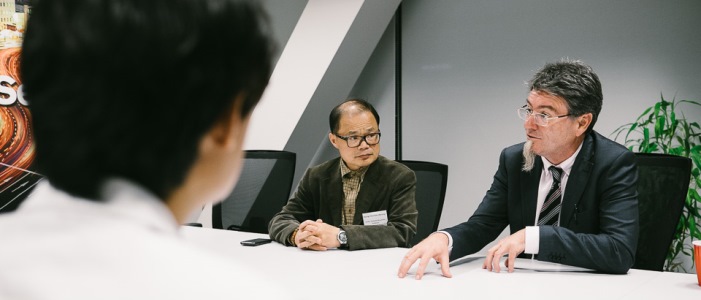News
3D printing bone tissue
Jun 28 2022
Being part of ACES—or even introducing yourself to us— gives you access to an international research network that has been 30 years in the making, and can add value to your project and in the long-term, your career.

Our Director Prof. Gordon Wallace calls it the “ACES passport” and he thinks every student and early career researcher in the business of translating fundamental electromaterials science research into energy and health devices should have one, with a view to collecting a few “stamps”.
“Creating a research network is a choice, and it can be hard when you’re starting out,” he said.
“Some people decide it’s best to focus on churning out papers but I think if you look at those making the most impact in the long-term, they’re the ones who have reached out to work with others.”
The ACES network is vast, encompassing seven national and five international institutions, which between them have the expertise required to incorporate the amazing properties of new materials into devices such as drug eluting implants, biodegradable batteries and fabrics containing sensors.
A partnership with the Australian National Fabrication Facility Materials Node, Wollongong, also provides the 3D printing capabilities to fast-track the development of an idea into a device or solution.
And that’s just scratching the surface, says Wallace.
The point is, that researchers no matter where they are from, can access this network.
The question for many, particularly those starting out in their career, is how?
To address this question and more, Professor Wallace will host a webinar called ‘Building collaborative research networks’, Tuesday 11 April from 12pm-12.30pm.
Attendees will learn:
AND…because we appreciate that your network will be different at various stages in your career, you’ll also hear from:
The webinar is open to ACES students and researchers, as well as those interested in what an ACES passport (or connection!) could mean for their research.













